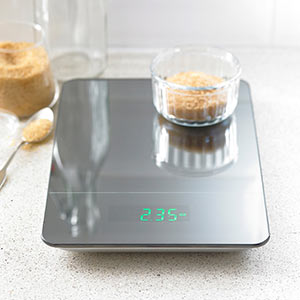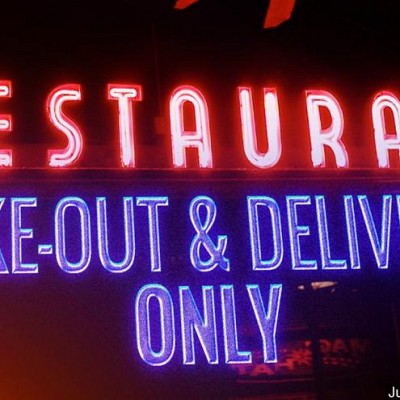One of the most significant responsibilities a restaurant owner has is managing inventory. Tracking and managing how you sell, order, store, and move stock in your restaurant is critical to ensuring you meet customer demand. It also impacts your food costs and financial stability.
This is crucial because the National Restaurant Association’s 2023 State of the Restaurant Industry Report revealed that “92% of operators say the cost of food is a significant issue for their restaurant.”
Fortunately, restaurants can now rely on a suite of digital tools to streamline inventory management, keep food costs in check, and increase profitability.
However, as impressive as digital solutions have been in successful restaurants, many are still using traditional paper-based systems to manage their inventories. And unfortunately, these restaurants are greatly underprepared for the future.
Traditional Paper-Based Systems Are Not the Future
Doing inventory manually worked at one time. It’s no longer the most efficient way to do things. But still, some have yet to let go of this outdated inventory management style.
You have to keep printouts, paper receipts, and handwritten notes organized and then transfer them to a spreadsheet to continue analyzing inventory. You must track supplier information, invoices, and other financials associated with managing inventory. You also have to take stock of your kitchen and match what’s on paper with what’s in front of you.
Mostly everything is done by hand and that’s incredibly time-consuming. Also, because humans are behind these processes, errors are bound to happen, increasing inaccuracies in your inventory information. As a result, you can’t track costs and stock accurately, affecting your ability to replenish efficiently and maintain a profit.
The better, more practical alternative is digitizing restaurant inventory management.
Employ Digital Solutions to Stay a Step Ahead
The world is becoming increasingly digital. This means technology is becoming more entrenched in your customers’ lives. And with technology and the online world comes the need for speed and consistency.
Consumers will be expecting their needs to be met quickly and efficiently all of the time, whether at a restaurant or another business establishment. This expectation isn’t set to go anywhere in the future. Shifting to digital solutions for inventory management that allow you to meet this expectation is a wise move.
One of the most significant benefits of using digital inventory management tools is that they save time. The need for manual input is eliminated. You can also digitize paper invoices, receipts, and other physical documentation and store them in a central system online so that they’re easier to access and manage.
By using digital tools, you eliminate a lot of human error too. You can keep track of your inventory levels in real-time, making it easy to spot and correct discrepancies quickly. You’ll be notified if numbers aren’t adding up correctly and when inventory counts are due, improving your accuracy.
Finally, the reports and data visualization features you get with digital tools enable better decision-making for effective inventory control. For instance, you can see when and where food waste is happening and can make better decisions when it’s time to replenish stock. You can see what your food costs are and get suggestions for how to lower them.
Ultimately, digital solutions for inventory management increase efficiency, improve accuracy, save you money, and help you make informed decisions about how to proceed and be more effective in the future.
Digital Tools on the Rise in Restaurants
The shift to digital in restaurants and the food industry encompasses many different technologies. There are too many systems and processes in an establishment for there not to be.
Robotic arms are taking over manual processes like cutting and slicing foods, reducing the risk of employee accidents and injuries. Automation tools such as machine vision are helping improve quality control by detecting errors and contamination issues with food before it ever reaches customers.
Artificial intelligence (AI) is assisting restaurants in the realm of data collection and analysis. These tools can gather and analyze customer, inventory, and business data and extract meaningful insights that enable predictive analytics.
IoT devices like handheld barcode scanners, tablets, and wearable tech are powerful digital tools for restaurants as well.
Each device is connected to the other and the information on them updates in real-time so that your team stays on the same page no matter where they are or what they’re doing. These devices can also connect to a central app that the entire team uses to manage activities in the restaurant.
The rise of these digital tools in restaurants is something to put on your watchlist. However, the one to really focus on is inventory management software.
Inventory Management Software is the Big One
Inventory management software is a system that streamlines all things associated with managing your restaurant’s inventory, from tracking stock levels to overseeing food costs to ordering to receiving deliveries to updating accounting and invoice information.
Integrated with your POS system, this software is made to simplify and automate as much of the inventory management process as possible to free you and your employees up to work on more complex tasks like creative marketing and customer relationship management.
An integrated inventory management system can help set your restaurant apart from competitors. For instance, your inventory records and processes are a lot more accurate and efficient, allowing for faster service delivery that improves customer satisfaction and loyalty.
You can protect your profit margins and reduce costs by automating stock replenishment. This means you can meet customer demand without delays and costly fees. In addition, you can make better decisions around inventory that boost your bottom line and give you an edge over competitors.
At the end of the day, it’s inventory management software you want to elevate the way you organize and maintain your restaurant’s inventory.






































